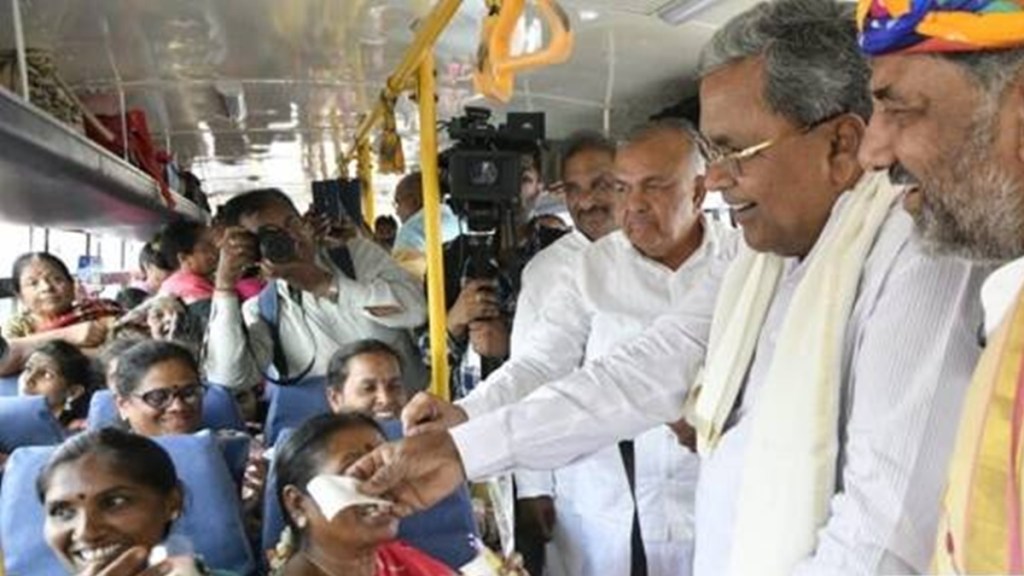The Karnataka government recently launched the Shakti scheme which allows women and people of the transgender community to travel in buses for free. After launching the scheme, Karnataka Chief Minister Siddaramaiah said that it empowers women to participate in the nation-building process. The scheme definitely reminds us of the Delhi government’s free travel facility for women in state-run buses, which when introduced, had met with a lot of mixed reactions. Along with many pros, the Shakti scheme also poses a few limitations. Here, we will cover all aspects of the Shakti Scheme which will give you a clear idea of how, despite its limitations, it has led to a surge in the number of women taking buses in the state.
Commuting via Shakti Smart Card
The Shakti Smart Card will be mandatory to avail the benefits of the scheme. The beneficiaries will have to fill an online application form on Karnataka Seva Sindhu Portal for the card. Till the time the beneficiaries receive their smart cards, they can show their Aadhar Card, Driving License, Voter Identity Card, or any other photographed identity card in the buses to get a ‘zero ticket’. The government has set a deadline of three months for the issuance of the smart cards.
Shakti Scheme: Limitations and Cost
The scheme allows for free travel only within the state limits and is for women who are domiciles of the state. It allows for free travel in Ordinary, Urban Transport, Express and Regular Transport Buses. The scheme does not cover bus services like AC, AC Sleeper, Non AC Sleeper or any luxury amenities. Besides this, as per multiple media reports, 50% of the seats will be reserved for men in the services.
While the Karnataka government says the scheme will help in empowering women, the scheme’s launch has met with mixed reactions online. Several social media users claimed it would increase the burden on the state. The scheme is projected to cost the Road Transport Corporation (RTC) around Rs 337 crore per month, and a total of Rs 4,051 crore per annum in concessions, as per a report by The Indian Express. The scheme will reportedly result in a fall of Rs 1,563 crore in the annual revenue of the KSRTC, while The BMTC, the NWKRTC and the KKRTC will see a drop of Rs 770 crore, Rs 906 crore and Rs 810 crore, respectively. The government, however, has said it is “committed to financially supporting the RTCs”.
